
Evolutionary Intelligence
Scope & Guideline
Charting New Territories in AI and Cognitive Science
Introduction
Aims and Scopes
- Evolutionary Algorithms and Metaheuristics:
The journal extensively covers the development and application of evolutionary algorithms, including genetic algorithms, particle swarm optimization, ant colony optimization, and hybrid algorithms that combine multiple techniques to enhance performance in optimization tasks. - Machine Learning and Deep Learning Applications:
A significant portion of the research focuses on the integration of evolutionary techniques with machine learning and deep learning methodologies, exploring their applications in areas such as image processing, medical diagnosis, and predictive analytics. - Optimization Problems in Engineering and Technology:
The journal addresses optimization challenges in engineering systems, including resource allocation, scheduling, and system design, utilizing evolutionary intelligence methods to improve efficiency and effectiveness. - Artificial Intelligence in Real-World Applications:
Research articles often discuss the application of evolutionary intelligence in solving real-world problems across various sectors, including healthcare, logistics, telecommunications, and environmental management. - Interdisciplinary Approaches:
The journal encourages interdisciplinary research that combines insights from computer science, biology, mathematics, and engineering to advance the field of evolutionary intelligence.
Trending and Emerging
- Hybrid Approaches Combining Evolutionary and Deep Learning Techniques:
There is a growing trend in the integration of evolutionary algorithms with deep learning techniques, highlighting the need for robust models that can adapt and learn from complex datasets, particularly in fields like medical imaging and natural language processing. - Explainable and Interpretable AI:
Research focusing on making AI models more explainable and interpretable is gaining traction. This trend is crucial as it addresses the challenges of trust and transparency in machine learning applications in sensitive areas such as healthcare and finance. - Sustainability and Environmental Applications:
Emerging themes include the application of evolutionary intelligence techniques to sustainability challenges, such as optimizing resource usage in renewable energy systems and addressing environmental issues through intelligent data analysis. - Federated Learning and Privacy-Preserving Techniques:
The interest in federated learning and privacy-preserving techniques is on the rise, reflecting the growing importance of data privacy and security in machine learning applications, particularly in sensitive sectors like healthcare. - Multi-Objective and Many-Objective Optimization:
Research focusing on multi-objective and many-objective optimization problems is increasingly prominent, indicating a shift towards solving complex real-world problems that involve multiple conflicting objectives.
Declining or Waning
- Traditional Optimization Techniques:
There is a noticeable decline in the publication of papers focused solely on traditional optimization techniques that do not incorporate evolutionary aspects. This shift indicates a move towards more integrated and innovative approaches. - Basic Algorithmic Studies:
Research that focuses primarily on basic algorithmic studies without applying them to complex, real-world problems seems to be less frequent. The trend suggests a preference for studies demonstrating practical applications and implications. - Niche Applications in Specific Domains:
The focus on niche applications of evolutionary algorithms in specific domains, such as agriculture or niche manufacturing processes, appears to be waning. The journal is trending towards broader applications that have wider implications.
Similar Journals
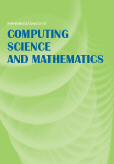
International Journal of Computing Science and Mathematics
Empowering Research in Computing Science and MathematicsThe International Journal of Computing Science and Mathematics, published by INDERSCIENCE ENTERPRISES LTD, is a pivotal platform for the dissemination of cutting-edge research in the intertwined disciplines of computing science and mathematics. With an ISSN of 1752-5055 and an E-ISSN of 1752-5063, the journal primarily serves the academic community engaged in applied mathematics, computational mathematics, theoretical computer science, and more, making significant contributions that resonate across various fields of technology and science. While the journal is currently categorized in the Q4 quartile for multiple related fields, including Applied Mathematics and Computational Theory, it continues to strive towards advancing the knowledge and practice within these areas. Spanning years from 2007 to 2010 and again from 2012 to 2024, the journal seeks to publish high-quality, peer-reviewed articles that not only address theoretical advancements but also explore practical applications of computing science in mathematical contexts, thereby fostering collaboration among researchers, professionals, and students alike. Please note that this journal is not available as Open Access, thus ensuring a curated content selection intended for dedicated research communities.
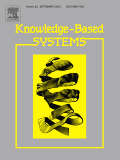
KNOWLEDGE-BASED SYSTEMS
Elevating Knowledge Through Cutting-Edge Research and ApplicationsKNOWLEDGE-BASED SYSTEMS, published by ELSEVIER, is a leading international journal that has established itself as a cornerstone in the fields of Artificial Intelligence, Information Systems and Management, and Software Development. With an impressive track record of over 35 years in publication, this journal is highly regarded for its significant contributions to the understanding and advancement of intelligent systems, providing a platform for innovative research and applications. It boasts a strong impact factor, maintaining a Q1 ranking across multiple categories, including Management Information Systems and Decision Sciences, reflecting its prestige and relevance in the academic community. Researchers and practitioners alike benefit from access to high-quality, peer-reviewed articles that explore the intersection of knowledge management and transformative technologies. The journal's commitment to fostering interdisciplinary research encourages the dissemination of knowledge that shapes the future of intelligent decision-making processes. With a substantial audience that includes professionals, academics, and students, KNOWLEDGE-BASED SYSTEMS continues to be a vital resource for those at the frontier of technological advancement.
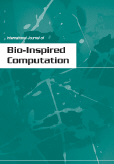
International Journal of Bio-Inspired Computation
Transforming Natural Insights into Computational ExcellenceInternational Journal of Bio-Inspired Computation, published by INDERSCIENCE ENTERPRISES LTD, is a leading platform dedicated to advancing research in the fields of bio-inspired computing and its applications. With a robust ISSN of 1758-0366 and E-ISSN of 1758-0374, this journal contributes significantly to the discourse in Computer Science, particularly emphasizing theoretical and practical frameworks that mirror natural processes. Situated in Switzerland, this peer-reviewed journal operates under a rigorous editorial process, ensuring high-quality publications that attract considerable attention, as evidenced by its placement in the Q2 category for 2023 in General Computer Science and Q3 in Theoretical Computer Science. With Scopus rankings reflecting its growing influence—ranked #62 out of 232 in General Computer Science and #36 out of 130 in Theoretical Computer Science—this journal invites researchers, professionals, and students to explore innovative methodologies and development in bio-inspired technologies. Although it currently does not adopt an open-access model, the journal remains committed to disseminating vital research that fuels advancements in computational intelligence, fostering collaboration and knowledge exchange in the ever-evolving landscape of computing.

Memetic Computing
Unleashing the Power of Memetic AlgorithmsMemetic Computing is a premier academic journal published by SPRINGER HEIDELBERG, dedicated to advancing research in the interdisciplinary domains of computer science and control optimization. With an impact factor that places it in the prestigious Q1 category for both Computer Science and Control and Optimization as of 2023, Memetic Computing stands at the forefront of innovation, offering researchers, professionals, and students a vital platform to explore and disseminate transformative findings in these rapidly evolving fields. With convergence periods specified from 2009 to 2024, the journal aims to illustrate the synergy between algorithmic and natural systems, reflecting current trends and future trajectories within the scope of memetic algorithms. Its robust Scopus rankings signal its significance as an influential resource within the global academic community. This journal is invaluable for those looking to enhance their understanding and engage with cutting-edge research that blends computational theory with practical applications.

Cluster Computing-The Journal of Networks Software Tools and Applications
Elevating the Standards of Network Computing ExcellenceCluster Computing - The Journal of Networks Software Tools and Applications, published by Springer, is a premier academic journal catering to the vibrant fields of computer networks and software technologies. With an impressive impact factor and recognized as a Q1 journal in both Computer Networks and Communications and Software categories for 2023, it ranks within the top echelons of its field, boasting a Scopus rank of #50 out of 395 and #59 out of 407 respectively, highlighting its influence and reach. The journal, which has been in continuous publication since 2005, serves as a vital platform for groundbreaking research, offering insightful articles and tools that drive innovation in network computing. Researchers, professionals, and students are invited to contribute to and benefit from the dynamic discourse presented in this journal, which is pivotal for advancing knowledge and enhancing practical applications in a rapidly evolving technological landscape.
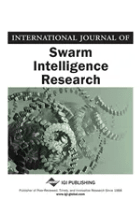
International Journal of Swarm Intelligence Research
Unveiling Insights in Swarm Intelligence ResearchInternational Journal of Swarm Intelligence Research, published by IGI Global, stands at the forefront of research in the dynamic field of artificial intelligence, focusing specifically on swarm intelligence and its applications. With an ISSN of 1947-9263 and an E-ISSN of 1947-9271, this journal has carved a niche within academia since its inception, boasting a commendable Q3 rank in the categories of Artificial Intelligence, Computational Theory and Mathematics, and Computer Science Applications as of 2023. The journal spans vital research from the years 2017 to 2024, fostering an environment that welcomes innovative studies that apply natural systems principles to computational methodologies. Although not classified as Open Access, the journal remains accessible to a broad audience, providing vital insights and fostering discussion among researchers, professionals, and students delving into cutting-edge swarm intelligence topics. As such, this journal is an essential resource for those aiming to advance their understanding and application of these transformative technologies.

International Journal of Combinatorial Optimization Problems and Informatics
Pioneering Research in Combinatorial Optimization.The International Journal of Combinatorial Optimization Problems and Informatics is a pivotal publication in the realm of combinatorial optimization and its practical applications. Published by the INT JOURNAL COMBINATORIAL OPTIMIZATION PROBLEMS & INFORMATICS, this journal serves as a platform for disseminating high-quality research that bridges theoretical insights and real-world implementation in informatics. With a focus on innovative problem-solving approaches and computational techniques, the journal aims to advance knowledge and foster collaboration among researchers, professionals, and students globally. Despite its relatively recent inception, the journal aspires to carve out a significant niche in the academic community, catering to an audience dedicated to exploring complex combinatorial challenges. The emphasis on open access facilitates broader dissemination of research, promoting inclusivity and engagement within the field. As the significance of combinatorial optimization continues to grow across various disciplines, this journal stands as a valuable resource for cutting-edge research and scholarly discussion.

ALGORITHMICA
Transforming Theoretical Concepts into Practical ApplicationsALGORITHMICA is a premier academic journal published by SPRINGER, dedicated to the field of algorithms and their applications across various domains. With an ISSN of 0178-4617 and an E-ISSN of 1432-0541, this journal serves as a vital resource for researchers and practitioners interested in the theoretical and practical aspects of algorithmic design and analysis. Recognized for its high impact, ALGORITHMICA is listed in the top quartile (Q1) for Applied Mathematics and Computer Science (miscellaneous) and is positioned in Q2 for Computer Science Applications in the 2023 category rankings. The journal has continuously contributed to advancing knowledge from its inception in 1986 to its ongoing publications through 2024. With a commitment to rigorous peer review and high-quality research, ALGORITHMICA is essential for anyone serious about pushing the boundaries of algorithmic study and application.

Swarm Intelligence
Pioneering Research in Adaptive Collective DynamicsSwarm Intelligence, published by Springer, is a leading academic journal dedicated to the interdisciplinary field of artificial intelligence, with a strong focus on the principles and applications of swarm intelligence. Since its inception in 2008, the journal has encompassed innovative research contributions that explore complex adaptive systems modeled after the collective behavior of social organisms. Operating within the Q2 category of artificial intelligence, according to the 2023 category quartiles, this journal has attained a respectable Scopus rank of 141 out of 350, placing it in the 59th percentile of its field. Researchers and professionals benefit from a platform that fosters high-quality scholarly dialogue and develops theoretical frameworks essential for understanding collective intelligence mechanisms. With no open access option currently available, readers can find this journal in esteemed libraries and university repositories, ensuring that cutting-edge research continues to permeate through the academic community and beyond.
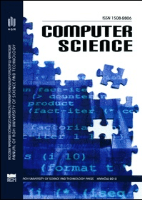
Computer Science-AGH
Connecting Ideas, Inspiring Collaboration in ComputingComputer Science-AGH, published by the AGH University of Science & Technology Press in Poland, is an esteemed open access journal that has been disseminating high-quality research since 2004. With ISSN 1508-2806 and E-ISSN 2300-7036, this journal focuses on a diverse range of areas within the computer science discipline, including but not limited to Artificial Intelligence, Computational Theory, Computer Graphics, and Networks. While it currently holds a Q4 ranking across several categories as of 2023, it actively promotes research that contributes to the academic community's understanding and evolution in the field. The journal's commitment to open access ensures that vital research is accessible to a wider audience, fostering collaboration and innovation. With its comprehensive focus and strategic publication goals, Computer Science-AGH plays a crucial role in advancing the frontiers of computer science research and education, making it an invaluable resource for researchers, professionals, and students alike.